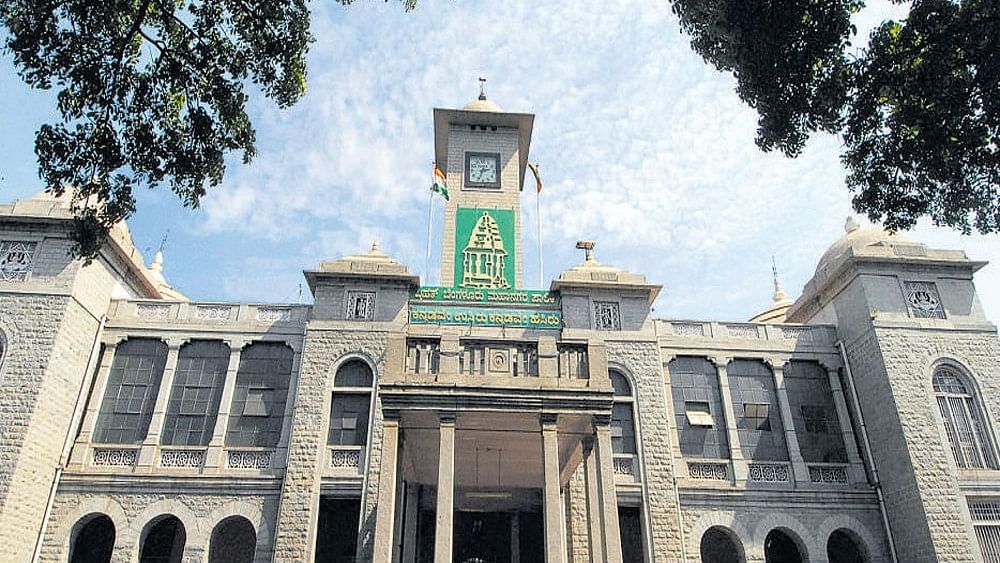
The Bruhat Bengaluru Mahanagara Palike (BBMP) council office.
Credit: DH Photo
Bengaluru: The Greater Bengaluru Governance Bill 2024, which has been referred to a joint legislative committee for scrutiny, proposes to give new wings to the controversial Akrama Sakrama scheme that was stayed by the Supreme Court.
What’s more, besides regularising up to 25% violations in non-residential buildings and 50% violations in residential buildings, the Congress government has brought up the cut-off date to accommodate recent violations.
The bill, which came up for discussion in the Karnataka Legislative Assembly on Thursday and was subsequently kept on hold, has a separate chapter on regularisation of certain unlawful buildings.
The commissioner or the joint commissioner of the zone has been empowered to regularise buildings constructed at least one year prior to the date of notification of this act.
In the BBMP Act 2020, the government had kept the cut-off date as October 2014, on the lines of the Akrama Sakrama Act. Considering that the bill will take a minimum of six months to come into effect, even the recent violations stand to benefit.
"Where the building is built abutting the neighbouring property or where the setback provided is less than the limit prescribed in bye-laws, violation up to 25% in case of non-residential buildings and 50% in case of residential buildings may be regularised,” the bill states.
This goes to show that the state government has provided leniency even on setback violations, protected in the Akrama Sakrama scheme.
The bill provides for regularisation of illegal constructions by making use of Premium Floor Area Ratio as per the Karnataka Town and Country Planning Act, 1961. The legislation, however, bars any regularisation of development made in the basement of the building.
The regularisation fee is based on the guidance value of the property.
"Regularisation of any construction under this section shall be subject to payment of the prescribed amount, which may be different for different types of contravention of building bye-laws,” the bill states.
While violations between 25% and 50% attract 8% of the market value as regularisation fee, the fee comes down to 6% for 25% violations. This is for residential buildings.
In case of commercial constructions, the fee ranges between 25% and 35% of the guidance value, depending on the extent of violations.
The bill also kept a provision to appeal before the government against the decisions of the commissioner and the joint commissioner within 30 days.
'Bill violates rights of neighbours'
Citizen groups are of the view that the regularisation of illegal constructions will violate the rights of the neighbour to get adequate ventilation and sunlight.
"The BBMP allowed up to 5% deviation from the sanctioned plan to make up for the construction errors. The regularisation of 25% to 50% violations will be against the well-being of neighbours. The government must not take such measures just to earn additional revenue,” said CN Kumar, a resident of Jayanagar.
Vijayan Menon, president of the Citizens Action Forum, said such policies have been junked by the Supreme Court several times. “The regularisation scheme goes against the court orders.”